Keeping tropical fish is not a cheap hobby, especially if you choose some of the more expensive species. So, you’ll want to know how long fish live. That way, you can at least choose fish species that will give you plenty of years of enjoyment in return for your investment.
So, how long do fish live? Unfortunately, there’s no one-size-fits-all answer to that question!
A fish’s life expectancy depends on several factors, such as species, sex, genetics, care, and general health, which we discuss in more detail below. But suffice it to say that a well-cared-for guppy typically lives for 1 to 3 years, whereas a Koi can survive for as long as 50 years!
Read this guide to learn how you can enable your pet fish to live to their full life expectancy and find out which species live the longest.
Fish Lifespan Depends on Your Care
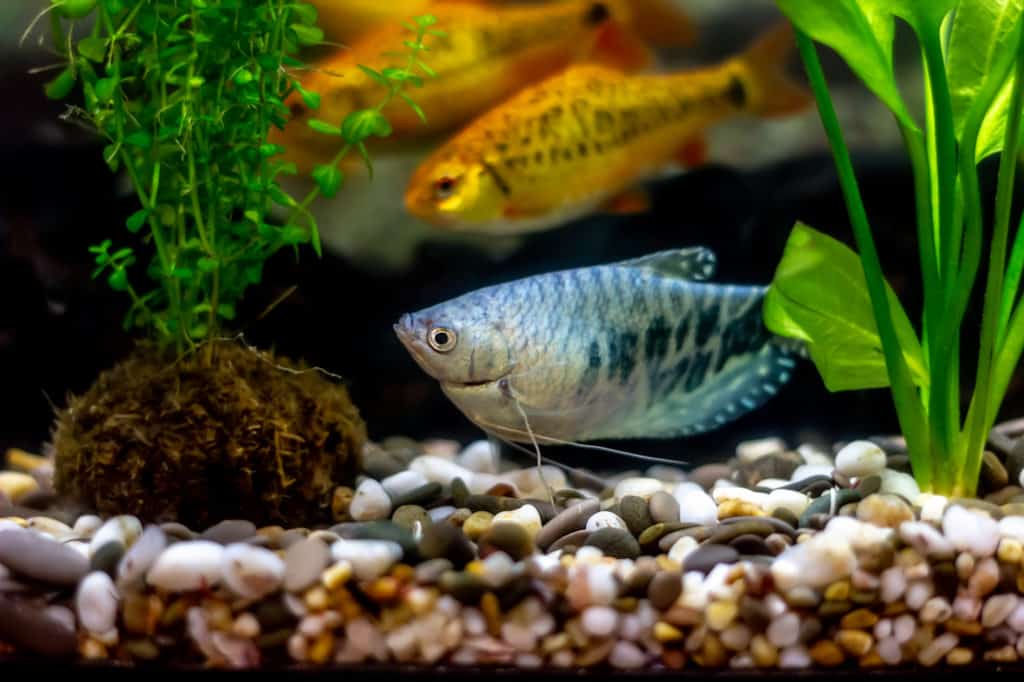
Regardless of the type of species you keep, the care you give your pet will ultimately determine its length of life. This includes the nature of the habitat you keep your pets, what type of water you use, and much more. Here are some things you can do to maximize your pet’s typical lifespan:
Maintain Optimal Environmental Conditions
One of the single most important things you can do to prolong the life of your pet is to provide it with ideal conditions. This includes maintaining stable oxygen levels and water temperature in its habitat. Another important factor is keeping the pH of your fish tank in a neutral range.
This is important because they spend their entire lives submerged in water, and therefore require its parameters to come as close as possible to their natural habitat. For instance, most tropical fish will need warm water that has a neutral to slightly acidic pH. This means that the parameters of your tank should be between 76°F – 80°F, and at a pH level between 6.5-7.0.
Take Proper Care Of Water Quality
One of the biggest factors that affect both your fish’s health and its lifespan is water conditions. A clean environment with excellent water quality can go a long way in ensuring that your pet has a sound body and mind. On the other hand, poor water quality can have adverse effects, such as eye infections and swim bladder disorder.
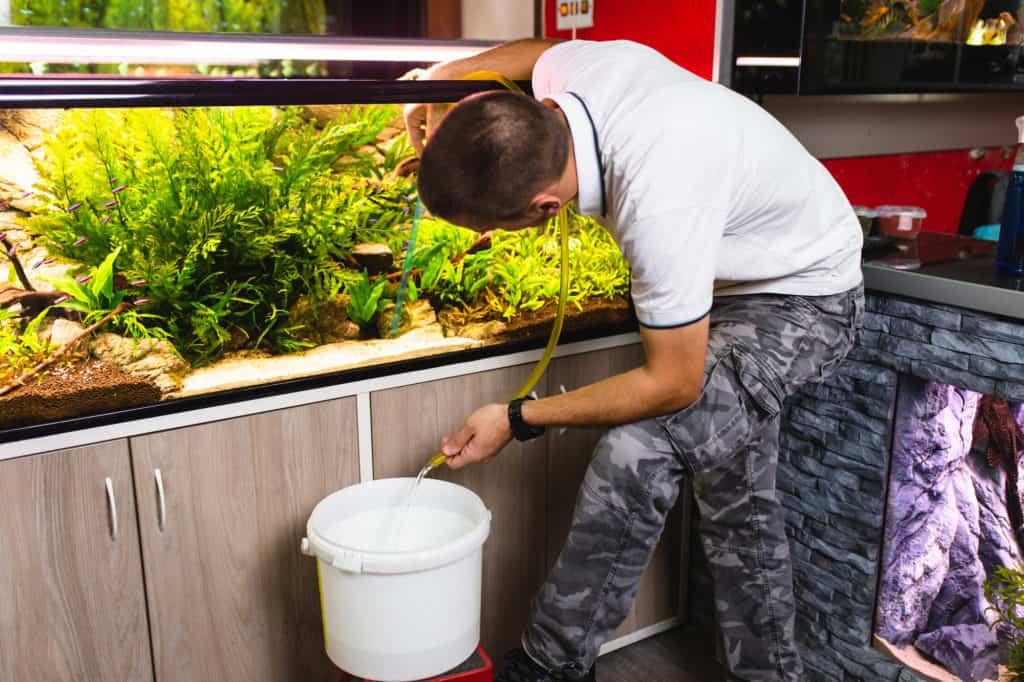
To ensure that your pet stays healthy, you need to keep your tank clean by performing regular water changes. Test your water’s nitrate and ammonia levels on a regular basis, and make sure that your filtration system is set up and working properly. Remember — if your fish’s water is not properly maintained, it can lead to disease and even death.
Choose The Right Tank Or Pond Size For Your Fish
The size of the tank you keep your pet in will also affect its lifespan. There’s a reason why fish farms are filled with huge tanks instead of small ones — it’s because bigger bodies of water enable their inhabitants to grow better and stronger. Therefore, you should always select an appropriately sized tank for your pet
A general rule of thumb is to select tanks based on the maximum size your fish will grow to. For example, many people keep goldfish in a bowl just because they’re cheap and easy to find, but this is not a practical solution since goldfish are expected to grow up to 12 inches long.
Therefore, if you want pets that stick around longer, you need to provide them with plenty of room. You can achieve this by setting up larger tanks or installing ponds in your backyard. We try to avoid small fish bowls. As a responsible pet owner, make sure your tank is large enough for the pet you want to keep.
I’ll tell you a funny story about fish tanks. I was given two tiny fancy goldfish as a present from my sister, together with a hexagonal-shaped tank to keep them in. Although that was a lovely idea, I had a few misgivings.

First of all, the fish were very small and clearly juveniles that would grow to a much larger size very quickly, so the tank would rapidly become too small for them, assuming they even survived that long.
Secondly, fancy goldfish are terrible swimmers, bumbling around the tank and struggling to maneuver without bumping into things. For that reason, a long tank is better than a tall one.
Anyway, as I predicted, the goldfish quickly outgrew their tank, so I bought another larger one and transferred my pets. The fish loved their spacious new rectangular home and thrived, so much so that their growth rate increased markedly!
Within a year, the new tank was far too small! At the time, I lived in a small house that wouldn’t accommodate a larger tank, so what could I do?
Luckily, I had a sizeable garden with plenty of space, and the region I live in is pretty mild in winter. So, I built a pond in the garden and moved the goldfish into it. The fish continued to grow until they reached just shy of 9 inches long!
How long did those fish live? Well, both fish ultimately lived to be around 12 years old, which just goes to show what you can achieve by providing your pets with the correct size environment!
Treat All Illnesses And Injuries
As your pet gets older, it is common for an age-related disease such as dropsy or fin rot to develop. This is because age weakens its body, making it more vulnerable to physical injuries and infections. You may begin to notice white spots on its body or symptoms of another common disease such as fin rot.
At this point, you need to provide your pet with medical attention as soon as possible. Time is of the essence because this will maximize its odds of recovery. This is especially important if your pet has other tankmates that may be at risk of catching the same illness or injury.
Average Life Expectancy Of Common Aquarium Fish Species
Now that we’ve gone through the things you can do to make your pet live longer, it’s important to note that different breeds of fish will have difference in life expectancy. Genetics plays a big role in your fishy friend’s lifespan, so you shouldn’t expect all species to behave the same way.
That being said, here’s a list of average aquarium fish and their average life expectancy:
Goldfish
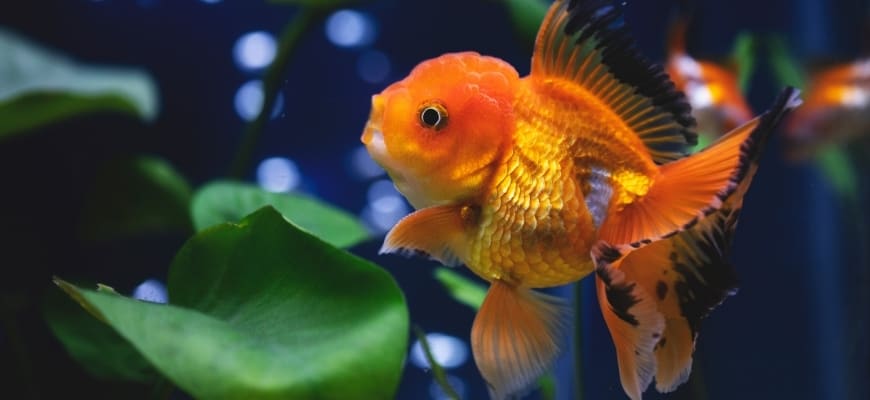
The humble common goldfish has a potential lifespan of up to 40 years. This makes it one of the hardiest pets you can keep at home, and a good choice for beginners who don’t want to come home every other day to perform tank maintenance.
Its more exotic cousin, the fancy goldfish is yet another popular pick for most aquarists. While it cannot live as long as the majority of goldfish, the fancy goldfish is still expected to live up to 15 years.
Guppies
Like most live-bearing fish, guppies are resilient and capable of adapting to most water conditions. They can live up to five years but is expected to die off at a younger age if it has been bred with another species.
Other livebearers such as platies and swordtails will stay by your side for up to four years.
Cichlids
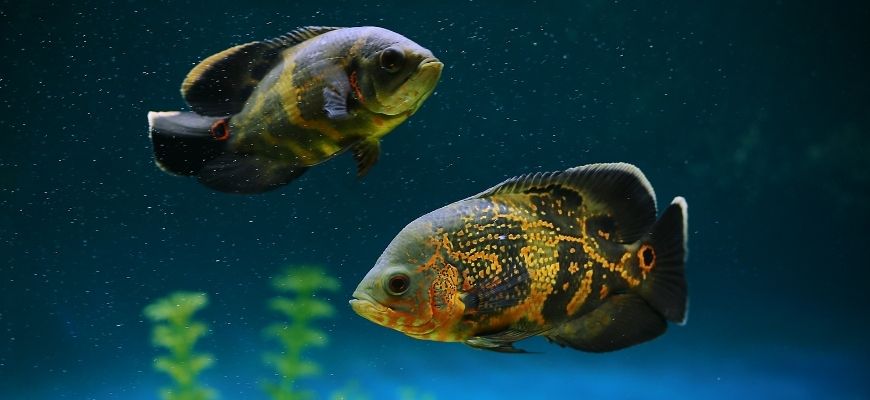
Aquarists who want a bigger challenge with their tank often go for cichlids (Ever-popular convict cichlid, Lemon cichlid) because of their unique personality and behavior. African cichlids are a crowd favorite due to their vibrant colors, and they are known to live up to 15 years.
Angelfish are yet another popular choice for cichlid enthusiasts. They can survive up to 10 years.
Betta Fish
The Siamese fighting fish is an easygoing pet with a known life expectancy (betta fish longevity) of seven years, but it is more commonly known to live three to four years due to its susceptibility to diseases.
Maximize their lifespan by providing them with a larger tank (10 gallons or more) filled with clean, warm water.
Tetras And Barbs
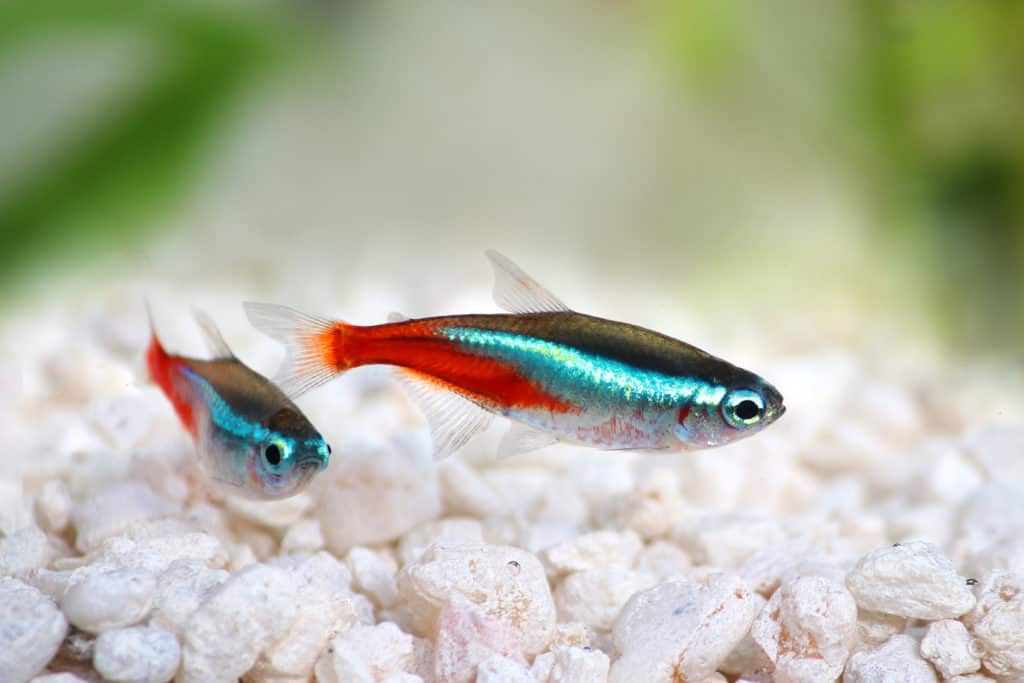
Although not as popular as the other options on this list, tetras are still generally hardy and are known for being easy to care for. This includes your Neon tetra, Black widow tetra, Bloodfin tetra, Cardinal tetras, Columbian tetra and Diamond tetra. This makes them a great pick for beginners, and they live up to three years in captivity.
Barbs are closely related to Tetras, with the notable difference of their noticeably longer finnage. Like tetras, barbs can live up to five years if properly taken care of.
Marine Fish
Finally, we have the much-loved saltwater aquarium species. This category will be a bit trickier because saltwater aquariums require a higher level of maintenance and expertise. That being said, if you know what you’re doing, they will be safe from dying too young.
Most marine species can live up to 10 years, but this will vary depending on the type you choose. Popular options like clownfish and tangs are known for living up to eight years, while moray eels will stick around for up to 15 years.
What Kind Of Fish Lives The Longest?
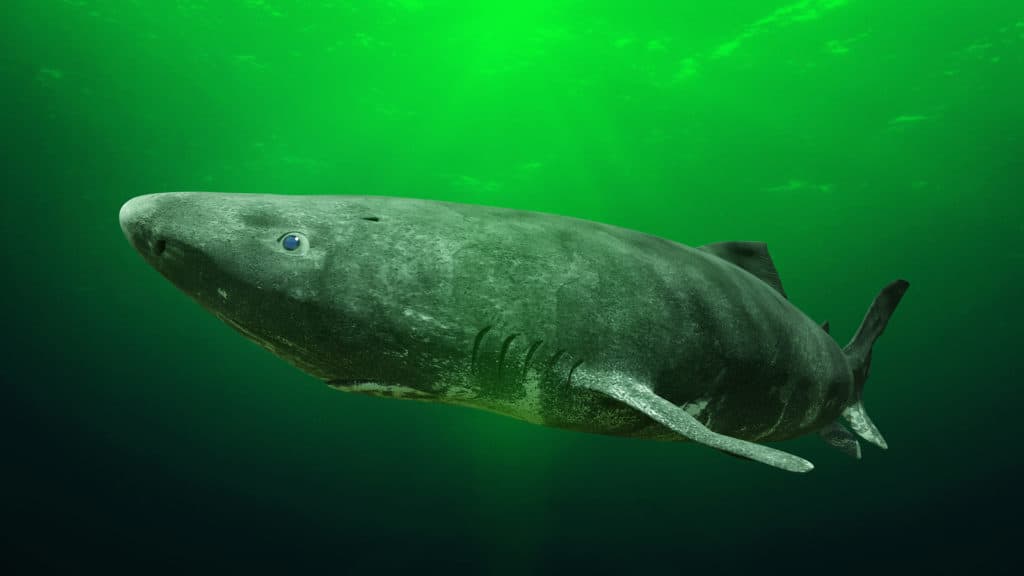
Did all this talk about average life expectancies make you wonder which species live the longest? Well, according to experts, a 392-year-old shark was the oldest living vertebrate on record. This species is known as the Greenland shark, which has an average lifespan of 272 years.
In general, species with a larger physical size mature more slowly and in turn live longer. While you may not be able to keep these massive individuals as pets, you can at least appreciate their beauty for as long as possible.
Conclusion
The expected lifespan of any aquarium fish will be heavily affected by its species and size. However, providing your pet with the correct care and keeping its living environment clean and healthy will maximize the number of years it will live. This will allow both you and your pet to enjoy each other’s company for as long as possible!
As always, if you have any questions, please feel free to leave us a comment below. And if you found this article helpful, please share it with a friend using our social media share buttons. Thank you for your support!
